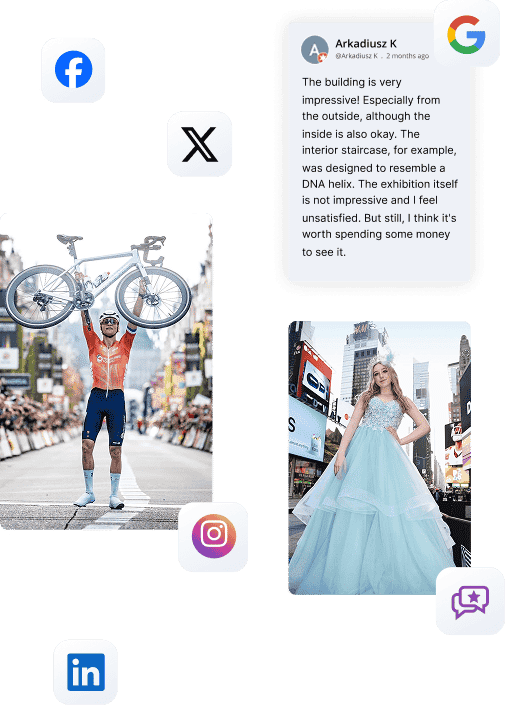Software as a Service (SaaS) products have taken over almost every industry because of their immense convenience and groundbreaking features. One major reason why SaaS products have gained a lot of popularity over the years is SaaS marketing. The way SaaS products and their features are being promoted has a major contribution to what it is today.
Availing benefits such as scalability, flexibility, better collaboration, etc, SaaS marketing can do wonders for a business.
Let’s dig a bit deeper into the world of SaaS marketing and understand the strategies used in the same. Understand the key benefits of SaaS marketing in detail to leverage it to its full potential.
What is meant by SaaS Marketing?
At its core, SaaS marketing consists of strategies specifically created to promote SaaS products. It stands at the forefront of modern business strategies, driving the promotion and adoption of subscription-based software solutions. SaaS marketing plays a pivotal role in shaping consumer perceptions and fostering long-term relationships with clients.
SaaS marketing encompasses a diverse array of tactics tailored to showcase the value proposition, features, and benefits of cloud-based software products. From attracting new users to retaining loyal customers, SaaS marketing strategies are designed to create meaningful connections and drive sustainable growth.
We delve into the intricacies of SaaS marketing, exploring key concepts, strategies, and metrics that underpin successful campaigns. From lead generation to customer retention, each aspect of SaaS marketing is dissected to provide actionable insights for brands seeking marketing growth.
Strategies Used In Saas Marketing
SaaS marketing thrives on a diverse range of strategies tailored to engage customers and drive conversions. Understanding the unique dynamics of subscription-based software, marketers employ a mix of approaches to showcase the value proposition of their products. Here are some key strategies employed in SaaS marketing:
1. Freemium Models
Offering a free version of the product with limited features entices users to experience the software’s capabilities firsthand. This strategy serves as a powerful lead generation saas tool, allowing potential customers to explore the product before committing to a subscription.
2. Referral Programs
Leveraging the power of word-of-mouth marketing, SaaS companies incentivize existing users to refer others to their service. By rewarding referrals, businesses tap into their loyal customer base to expand their reach and acquire new customers organically.
3. Influencer Marketing
Collaborating with influencers in the industry amplifies brand visibility and credibility. Influencers endorse SaaS products to their audience, leveraging their authority and trust to drive conversions. SaaS companies strategically partner with influencers whose audience aligns with their target market, maximizing the impact of their marketing efforts.
4. Collaborative Partnerships
Forming strategic partnerships with complementary brands extends the reach of SaaS products to new audiences. By integrating with other software solutions or service providers, SaaS companies enhance their value proposition and offer comprehensive solutions to customers.
5. User Reviews and Testimonials
Harnessing the power of SaaS customer reviews, brands build trust and credibility among potential customers. Positive reviews and testimonials serve as social proof, validating the efficacy and reliability of the software. SaaS companies actively encourage satisfied customers to share their experiences, leveraging user-generated content to influence purchasing decisions.
Benefits of Saas Marketing
SaaS marketing offers a plethora of advantages for both businesses and customers. This has revolutionized the software industry and transformed the way products are marketed and consumed. Here are some key benefits of SaaS marketing:
1. Scalability and Flexibility
One of the foremost benefits of SaaS marketing is its scalability and flexibility. SaaS products are typically cloud-based, allowing businesses to scale their operations seamlessly without the need for additional infrastructure investments. This scalability enables SaaS companies to cater to the evolving needs of their customers, whether they are startups or enterprise-level organizations.
2. Cost-Effectiveness
SaaS marketing offers a cost-effective alternative to traditional software deployment models. By eliminating the need for upfront hardware costs and lengthy installation, SaaS products significantly reduce the barrier to entry for customers. Businesses can subscribe to SaaS solutions on a pay-as-you-go basis, optimizing their expenses and allocating resources more efficiently.
3. Ease of Adoption and Integration
SaaS marketing emphasizes user-centric design and intuitive interfaces, making it easy for customers to adopt and integrate new software into their existing workflows. With minimal training requirements, users can quickly familiarize themselves with SaaS applications, accelerating the onboarding process and maximizing productivity.
4. Continuous Updates
Unlike traditional software, which requires manual updates and maintenance, SaaS products are automatically updated by the provider. SaaS marketing ensures that customers always have access to the latest features and security patches without any disruption to their operations. This proactive approach to software maintenance enhances reliability and minimizes downtime for users.
5. Enhanced Collaboration
SaaS marketing promotes collaboration and accessibility by enabling users to access software applications from any device with an internet connection. With cloud-based storage and real-time collaboration features, SaaS products facilitate seamless communication and teamwork, regardless of geographical location or time zone.
6. Data Security and Compliance
SaaS marketing prioritizes data security and compliance, offering robust encryption protocols and compliance certifications to protect sensitive information. SaaS providers implement stringent security measures to safeguard customer data against cyber threats and unauthorized access, ensuring peace of mind for businesses and their clients.
Conclusion
SaaS marketing stands as a cornerstone in the ever-evolving landscape of modern business strategies. This eventually facilitates the promotion and adoption of subscription-based software solutions. Its significance lies in its ability to shape consumer perceptions, foster long-term relationships, and drive sustainable growth for businesses.
By employing diverse tactics such as freemium models, referral programs, etc., SaaS companies effectively engage customers and drive conversions. SaaS offers a myriad of benefits including scalability, cost-effectiveness, ease of adoption and integration, continuous updates and maintenance, and many more.
SaaS marketing will undoubtedly remain a pivotal force, revolutionizing the software industry and transforming the way products are marketed and consumed. Embracing the principles and strategies of SaaS marketing will be essential for businesses to thrive in an increasingly competitive digital landscape.



